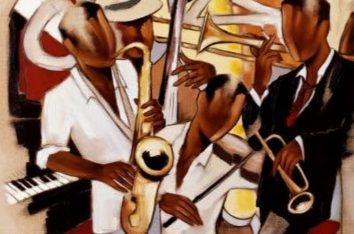 In a recent piece on Upworthy dealing with the kind of objectification that many women deal with on a regular basis, a young woman agrees to be followed by someone with a hidden camera for an entire day in order to capture the kind of treatment she gets from men in the form of catcalls and lewd comments. It is pretty eye-opening (especially if you’re a guy), and I would recommend spending the 6+ minutes it will take to watch it.
In a recent piece on Upworthy dealing with the kind of objectification that many women deal with on a regular basis, a young woman agrees to be followed by someone with a hidden camera for an entire day in order to capture the kind of treatment she gets from men in the form of catcalls and lewd comments. It is pretty eye-opening (especially if you’re a guy), and I would recommend spending the 6+ minutes it will take to watch it.
One thing that stood out to me was when the young woman said:
“I know I dress kind of provocative, but it doesn’t mean I should have to deal with [this kind of treatment].”
I recently got into a discussion with a friend about this kind of thing, and the “rape culture” issue in general, and I’d like to put forth to you the point I was trying to make with him. What I was suggesting is that, while the only person bearing any moral responsibility for raping a woman is the rapist himself (who, by the way, should be castrated and then buried alive), there is nevertheless an element of pragmatic wisdom that women would do well to take into account. As much as we all wish we lived in a utopian and post-rape world, we don’t, and if some sick bastard is going to rape someone, isn’t it possible that he will choose the most sexually stimulating victim he can find? And if so, should that factor — horrific though it is — be weighed and considered at all significant when getting dressed in the morning?
Is this question itself feeding the very “rape culture” that I am claiming we all want to eliminate? Is suggesting that there is a certain amount of logical causality here tantamount to blaming the rape victim or tacitly endorsing the man’s right to attack her because she is dressed provocatively?
To put it in a different context, is deciding NOT to wear a T-shirt with an image of Mohammad on it while on vacation in Syria just a matter of wisdom, or is it subtly placing a stamp of approval on religious fanaticism? If I wore the shirt and then got beheaded, would there be any degree of (non-moral) causality between what I wore and what happened to me?
Is this simply an issue of liberty and freedom on the part of women to wear whatever they want, full stop, or is it an issue of exercising one’s rights wisely?
Discuss. . . .



“I know I dress . . . provocative, but that doesn’t mean . . . I should have to deal with it.”
You dress in a manner so as to provoke men, but you shouldn’t have to deal with “it”, where “it” represents men acting on the provocation you intentionally stirred in them?
I’m not sayin’ there should be a law against provocative dress (at least that’s not the argument I’m mounting here), but if you’re going to dress provocatively, why should you not have to deal with the people you provoked?
To be clear, the assaults and what not described in the video are despicable beyond words. It’s the incredulity at catcalls and attention on the street that seems a bit much.
Except rape isn’t about eroticism, it’s about violence. So you have a seriously flawed premise here.
LMAO, beheaded! Okay, maybe that’s not funny but I def appreciate the comparison and the humor therein. Again, not funny…shouldn’t really be laughing. Okay, I’m an asshole who’s totally cracking up at this.
Thing is, I’ve been catcalled and harassed even while covered up (these were the days when Jesus was still my only lover, and He commanded that I dress conservatively. Ha ha) and it was unnerving for me as a young teenage girl. I wonder if a lot of women just gave up covering up since that shit went on regardless, I know I kind of did.
This is a tough convo right now, in the heat of summer (fuck you, WA…it’s supposed to be cold and rainy here) when walking around naked sounds divine. I keep trying to find clothes to cover my ass and tits but also something that I can stay cool in. It’s a battle every day. But why should it BE a battle every day? Lately, I’ve been thinking it might be nice to just clad myself in a light cotton robe, like some other cultures, and go about my day. Nice and baggy, light and breezy, and no curve-hugging whatsoever. Seriously, I’ve been dreaming about it the past week…sigh.
Are we just living in an over-sexualized society, perhaps? One in which nakedness means ONLY one thing? I don’t know…still trying to figure this bullshit out.
Yeah, Zrim makes a valid point here…we’re told, statistically that rape is not about sex but about violence and control. Ridding society of the idea that people are “property” and possibly lesser than yourself seems to be the root issue?
I would agree that in the most extreme cases rape is about violence and power. But what about in cases where the guy is not some serial rapist, but a guy at a party who meets a flirty girl? He didn’t leave the house thinking he was going to rape someone, but he did get (what he considers) mixed messages, to the point where his hormones kind of take control of him?
This is not to excuse him for acting against the will of the woman, but I am just wondering aloud whether there is a non-moral cause-and-effect dynamic here between her dressing a certain way and a guy making certain assumptions about her.
To borrow Dave Chappelle’s illustration, it’s like me wearing a policeman’s uniform and then getting confused when people run up to me and try to report a crime.
My bigger question is, is what I am suggesting itself feeding the rape culture?
Sorry, I still think you’re missing it. Rape is by and large about violence and power. Rape in any instance is extreme, even the in the flirty-girl-party-boy scenario (not just the Hollywood-alley-way image). So, yes I do think your suggestion is perpetuating an unhelpful set of assumptions.
That said, as a father of girls I try to foster a sense of wisdom and modesty in them because as a card-carrying member male society, I know how we think. But the difference is this: I would encourage wisdom and modesty on their parts so that they don’t send sexual signals that could get them into dicey erotic situations. At worst, they’ll harm an otherwise healthy relationship. But once a dicey erotic situation turns to rape, they have just discovered that they’ve had not simply a confused but a violent friend all along.
To answer your question, this type of thinking absolutely does contribute to rape culture because it makes the assumption that a woman is raped because she is dressing provocatively or because she is “sexually stimulating.” The major problem with this type of thinking is that it assumes that a man rapes a woman because he found her to be sexually stimulating because of some factor within her control. This thinking assumes that rape is about sex and finding someone to be sexually attractive, so much so that you cannot control yourself, disregard consent and force yourself on that person. This idea contributes to rape culture because it eventually comes back to the woman–if she had not dressed that way, then her rapist might not have had those thoughts, could have better controlled himself, and ultimately not decided to commit rape. It puts the onus on women to not do whatever they did that resulted in the type of attention from men that ultimately resulted in rape. What this type of thinking assumes is that rape happens because men get mixed signals or the wrong signals from women, instead of treating rape as a more systemic problem with the ways in which men view women–as sexual objects to be controlled by men–and the ways in which men view consent–a woman is inviting sexual attention from all men by the way she dresses, looks, and/or talks. Focusing on how women dress creates a culture of fear and victim shaming for women. It leads women to believe that if a man makes unwanted sexual advances, then it must be because that woman did something to invite it. My own experiences with sexual harassment, which are often nothing more than me walking down a street by myself in perfectly appropriate clothing, leads me to believe that there is no level of dress that men might not read as an invitation to sexual comments as long as you are seemingly young, thin, and attractive. Focusing on the ways in which women dress completely misses the point about what rape is: rape is about power and control. Rape is about men believing that they have a right to have their sexual needs satisfied whether or not their potential sexual partner is willing. Rape is about men not understanding what consent is, why it is important, and that women do not solely exist to gratify men’s sexual desires. To combat rape culture, we should talk more about how women are people and not sexual objects, about how important consent is, and the role that drinking plays in fostering rape culture and rape in general. Telling women to be wise and cover up so that they don’t invite the attentions of a rapist further entrenches the idea that women are in fact the root of the problem.
I wanted to share a link from another blogger to compliment what you wrote: http://realphysics.blogspot.com/2013/06/modesty-is-simply-thoughtfulness.html
Laura,
Thanks for your comments.
Part of the disconnect for me is that I just don’t understand rape at all. I don’t understand how someone could get the least amount of pleasure from it, sexual or otherwise.
So that to say, I do see your point, and agree that for those for whom it is only about power, dress makes little to no difference.
I do still wonder about the non-rapist guy at the party though. It seems like for him it’s about sex with a pretty and provocatively-dressed girl. I also wonder about the stats on these two kinds of rape: Does the proverbial college party rape outnumber the proverbial stairwell in a parking garage kind? Or the other way around?
I’m still not quite following what you’re not following. If party boy rapes that girl, which is to say he forces himself sexually on her, it has little to nothing to do with what she’s previously conveyed. Flirtatious behavior is summoning wanted behavior, not unwanted.
My point is that there seems to be a difference between a guy who is attracted to a girl at a party, is rebuffed eventually, feels led-on, and then rapes her on the one hand, and a guy who waits for women in the stairwells of parking garages on the other.
I would be wrong, what do I know? But it does seem to me that for the second guy it’s purely about power, whereas it doesn’t seem so for the first guy.
Ok. But what I see is a distinction without a difference between the two, and a substantive difference between the guy who feels led on but refrains and those two. Rape in any scenario is always about power to greater or lesser degrees, and all the non-rapist wants is sex.
Jason, I see what you mean by there being a difference between a guy who rapes his girlfriend or a girl he met at a party, and a serial sociopathic rapist. However, the root of the crime is still power, as Zrim said. “Date rape” situations vastly outnumber “parking lot stairwell” rapes. It’s hard to get numbers because the Department of Justice estimates that at least two thirds of rapes go unreported, precisely because most rape victims know their rapist.
I think the difference comes in how we deal with these two different people who commit rape. Educating young people, specifically young guys, about consent and what rape is and how serious it is is extremely important. It has to be clear that at its root, there is no difference between the rapist who doesn’t know his victim and the rapist who does. It is not made any better just because you happen to know the person. As for why anyone gets enjoyment out of it, I have no idea either, but the fact that a large segment of the porn industry is devoted to bondage/rape porn is pretty telling as to how widespread these tendencies are.
Fair points, Laura. What about cat-calling then? Is there a connection between dress and unwelcome lewd remarks?
And when it comes to porn, I just need there to be midgets. S’all I ask.
“Cat-calling”? Uh, the 1950s called, it wants its duck-ass back. And I believe they’re called People McNuggets, sir.